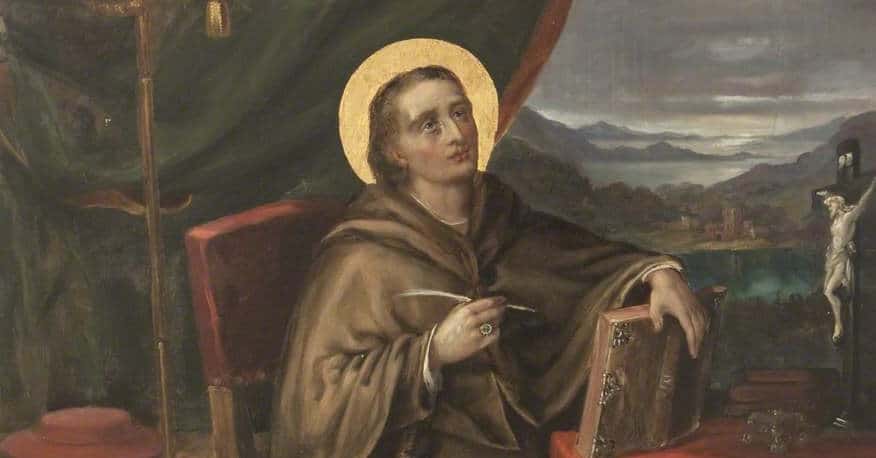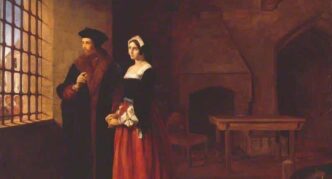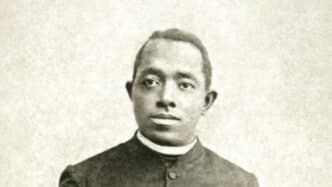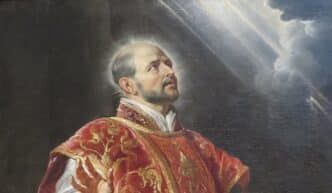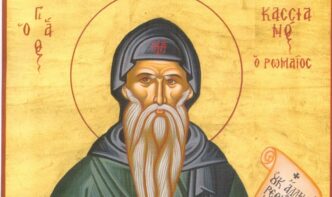St. Bonaventure
Feast day: July 15
“Do not be disturbed, that the brothers were simple and illiterate men in the beginning; this should confirm your faith in the order even more. I confess before God that it is this that made me love the life of blessed Francis above all, because it is similar in its beginning and perfection to that of the Church, which began with simple fishermen and grew to include the most illustrious and learned doctors. And so you will see in the order of blessed Francis, as God displays, that it was not invented by human discernment but by Christ.”
These are the words of St. Bonaventure, Franciscan friar and Doctor of the Church, who was also a cardinal and minister general of the Order of Friars Minor in the 13th century. Despite his estimable learning and knowledge, St. Bonaventure was especially known for his humility, compassion and kindness toward all.
Born in Italy in 1221 and baptized Giovanni, St. Bonaventure was cured of a serious illness as a child through his mother’s prayers of intercession to St. Francis of Assisi. It was undoubtedly this cure that convinced him to become a Franciscan — taking the name Bonaventure — in 1243, and to be ordained a priest in what was then known as the Order of Lesser Brothers after eight years of study at the University of Paris.
He was given the right to preach publicly and continued to teach with much success in Paris. At the university, St. Bonaventure befriended St. Thomas Aquinas and dealt prudently with matters of envy displayed toward the mendicant orders of the Franciscans and Dominicans. A disciple of St. Augustine and through him of Plato, St. Bonaventure was one of the greatest philosophers of the Middle Ages and wrote numerous philosophical and theological works. In his well-known “Commentary on the Sentences,” he writes in a synthetical and mystical style on the theology of love and the presence of God as a loving Father.
But, as erudite and intellectual as he was, St. Bonaventure could also be very practical. Governing the Franciscans during a contentious period, he reformed the order by recodifying its constitutions and successfully dealt with two dissenting factions. He made tireless personal visits to each province, despite ill health, seeking a prudent solution for building harmony within the Franciscans. At this time, he also prescribed that at nightfall a bell should be rung in honor of the Annunciation, a practice from which the Angelus may have originated.
To further promote peace within the order, St. Bonaventure was asked to write a biography of St. Francis — a work he felt he was totally unqualified to accomplish. His “Major Legend,” in which he shows readers how St. Francis lived in imitation of Christ, is still considered a theological masterpiece. St. Bonaventure also published a shorter, more concise work on the life of St. Francis, “The Minor Legend.” The stigmata of St. Francis provided a roadmap for St. Bonaventure to show all people the importance of following the crucified Christ.
A man who preached reconciliatory themes before popes and kings in Spain, Germany, France and Italy, St. Bonaventure was so gentle and humble that he was found cleaning the dishes outside a convent when it was announced to him that he had been made a cardinal in 1273. He requested that his cardinal’s hat be hung on a tree until his hands were free. The following year, he was a leading figure at the Second Council of Lyon, at which he helped to reconcile the secular, or parish, clergy with the new mendicant orders and attempted to heal the Great Schism of 1054 between the Eastern and Western churches.
St. Bonaventure was a great thinker who spent more time praying than studying. There was a deep inward peace and joy about him. He always attempted to deal with the most difficult people in love. St. Bonaventure died July 15, 1274, while the Second Council of Lyon was still in session. He was canonized in 1482 and declared a Doctor of the Church in 1588.
Reflection
Dear God, may I be one who shows others your love whether in published writings or in the kindness and gentleness I offer to everyone. Give me your peace that I may share the joy of knowing you with all.
Prayer
Grant, we pray, almighty God,
that, just as we celebrate the heavenly birthday
of the Bishop St. Bonaventure,
we may benefit from his great learning
and constantly imitate the ardor of his charity.
Through our Lord Jesus Christ, your Son,
who lives and reigns with you in the unity of the Holy Spirit,
God, for ever and ever.

